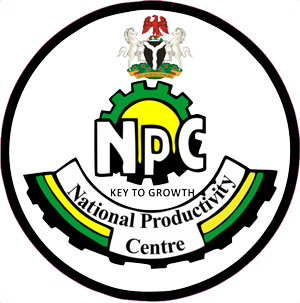In a concerted effort to increase the competitiveness of Nano, Micro, Small, and Medium Enterprises (NMSMEs) in alignment with President Bola Ahmed Tinubu’s economic vision, the National Productivity Centre (NPC) recently concluded a week-long intensive training session. Held from August 7 to 13, 2023, at the Anti-Corruption Academy of Nigeria (ACAN), the gathering saw NPC officials collaborating with in-house productivity consultants to equip directors and senior officers of the organization with advanced productivity tools and techniques.
The overarching goal of this endeavor is to equip NMSMEs with the skills, strategies, and insights necessary to thrive in today’s challenging business landscape. The dynamic training aimed to empower participants with the proficiency to harness resources and capitalize on opportunities, echoing President Tinubu’s agenda for economic growth.
Dr. Nasir Raji-Mustapha, Director-General of the NPC, emphasized the significance of equipping beneficiaries with essential skills to optimally leverage resources. He underscored the critical role of training in translating government grants and resources into tangible progress. The serene environment of the ACAN provided the perfect backdrop for this transformative training initiative.
As an agency established by the Federal Government in April 1987, the NPC has traversed various stages of evolution and development. Raji-Mustapha acknowledged the journey’s challenges, successes, and growth, which have collectively propelled the organization toward its overarching mandate.
This training was strategically timed to address the evolving state of the Nigerian economy, characterized by volatility, uncertainty, complexity, and ambiguity (VUCA). The NPC recognizes the pressing need to equip participants with strategies to navigate this intricate economic landscape. This training was also designed to introduce participants to the implementation strategies of performance management systems, a significant development in Nigeria’s public service.
The CEO expressed excitement about the potential impact of the productivity and quality improvement program (P&QIP). In-house productivity consultants are poised to offer invaluable business solutions to enterprises by applying productivity techniques such as 5S Good Housekeeping, Kaizen, Green Productivity, and more, all aimed at driving substantial improvement.
Raji-Mustapha reiterated that the time has come to usher in transformative changes and harness productivity improvement initiatives’ full benefits. This sentiment was echoed by Kachallom Daju, the Permanent Secretary of the Ministry of Labour and Employment, who commended the NPC’s strategic approach to enhancing lives.
The training also saw the participation of Mrs. Rosemary Esekhagbe, the agency’s Director of Planning and Policy Analysis. She welcomed the esteemed guests and participants, emphasizing a shared commitment to growth, development, and excellence. Esekhagbe highlighted the pivotal role of performance management and productivity in organizational success, echoing the sentiment that these practices optimize capabilities and set a course for continuous improvement.
This event also saw the lead consultant for the “Productivity Improvement Tools and Techniques” program, Engr. Adejoh David, emphasizing the alignment of the Centre’s programs with President Tinubu’s vision for NMSMEs. The training aimed to empower participants to evaluate organizational inefficiencies, while also arming them with the tools to enhance quality, processes, and productivity across Nigeria’s economic sectors.
Dr. Olayiwola Oladapo, the lead consultant for the “Performance Management Systems” training, delved into the core principles of productivity. He stressed the need for a mindset shift among private and public sector workers to address global challenges, making the country more competitive. He acknowledged the strides being taken by the present administration to improve conditions for Nigerian workers.
The interactive sessions facilitated active participation from attendees, who shared both positive and challenging experiences. The consensus underscored the importance of harmonious cooperation among workers, regardless of their sector, while also advocating for supportive government policies, better tools, secure environments, and improved salaries.
At the conclusion of this comprehensive training, Raji-Mustapha affirmed the administration’s commitment to staff well-being and productivity enhancement. His assurance reverberates a proactive approach to nurturing a skilled, motivated workforce that contributes meaningfully to Nigeria’s growth journey.









